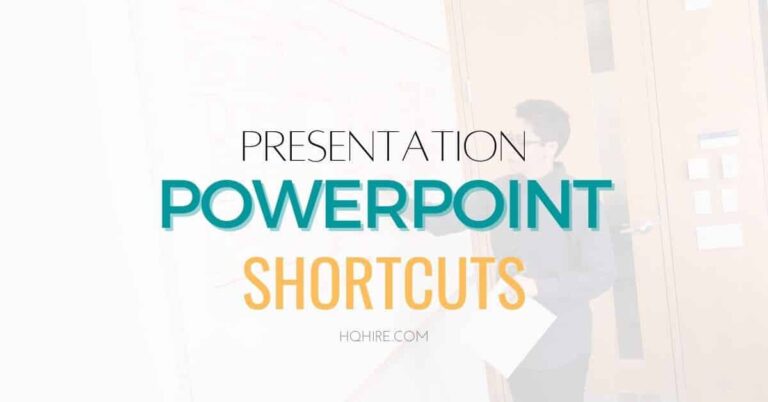When you go for an job interview, one of the most common question that often comes up is about meeting preparation, “How do you prepare for important meetings?”. Being ready for this question can give you a big edge.
To prepare for important meetings, you should review the agenda, gather relevant materials, and anticipate potential questions or challenges.
Getting this question right can impress your interviewer.
It shows you’re thoughtful and take your work seriously. With a good answer, you’ll prove you’re a strong candidate who’s ready to contribute from day one.
Key Takeaways
- Review the agenda and gather materials before important meetings
- Anticipate questions and challenges to show proactivity
- Demonstrate organization and respect for others’ time in your answer
Why Do Employers Ask ‘How Do You Prepare for Important Meetings?’
Employers want to know if you’re organized and take your work seriously. By asking this question, they can see how you approach important tasks. They’re looking for candidates who plan ahead and come prepared. Your answer shows if you can manage your time well and prioritize effectively.
Your response gives insight into your problem-solving abilities. It shows if you can anticipate challenges and come up with solutions in advance.
- How you prepare for meetings often reflects how you’ll interact with colleagues and clients.
- The question helps employers assess your attention to detail.
- Your preparation methods reveal your work ethic and professionalism.
- This question also shows how you handle pressure.
- Employers are interested in your adaptability and if you’re flexible in your approach to different types of meetings.
By asking about meeting preparation, employers can evaluate your leadership potential. Good leaders often excel at planning and running effective meetings.
Common Variations of “How Do You Prepare for Important Meetings?”

Interviewers may ask this question in different ways. Here are some common variations:
- “What’s your process for getting ready for big meetings?”
- “How do you ensure you’re prepared for crucial discussions?”
- “Can you walk me through your meeting prep routine?”
These questions aim to understand your organizational skills and work style. They want to know if you take meetings seriously.
Some other ways they might phrase it:
- “What steps do you take before an important presentation?”
- “How do you make sure you’re ready for high-stakes meetings?”
- “What’s your strategy for preparing client meetings?”
Your answer should show that you’re proactive and thorough. Highlight your ability to plan ahead and think critically, the interviewer wants to see that you:
- Research the meeting topic
- Gather necessary materials
- Practice your talking points
- Anticipate questions or concerns
By preparing well, you show that you value others’ time and take your role seriously. This impresses potential employers and sets you up for success.
How to Answer “How Do You Prepare for Important Meetings?”

Being well-prepared for important meetings can boost your confidence and impress your interviewer. Here’s a step-by-step approach to showcase your organizational skills and readiness.
Step 1: Research The Meeting Purpose
Start by researching the meeting’s purpose and attendees. Look up the company’s recent news and achievements. Review the meeting agenda if available. Ask thoughtful questions about the meeting’s goals and expected outcomes.
Highlight your proactive approach:
- Check LinkedIn profiles of key participants
- Review company reports or industry trends
- Prepare relevant talking points
Your preparation shows initiative and genuine interest in the meeting’s success.
Step 2: Organize The Materials
Gather and organize all necessary materials. Create a checklist of items you’ll need:
- Meeting agenda
- Relevant documents or reports
- Presentation materials (if applicable)
- Note-taking supplies
Mention how you use digital tools to stay organized. For example, you might use a project management app to track tasks and deadlines. Explain how this helps you arrive fully equipped and ready to contribute.
Step 3: Practice Talking Points
Practice your presentation or talking points. If you’re leading a portion of the meeting, rehearse your delivery. Time yourself to ensure you stay within any allotted time limits.
Tips for effective practice:
- Record yourself and review for improvement
- Present to a friend or colleague for feedback
- Prepare answers to potential questions
Emphasize how practice builds your confidence and helps you deliver information clearly and concisely.
Step 4: Plan Ahead
Plan your logistics. Determine the meeting location and travel time. If it’s a virtual meeting, test your technology in advance. Arrive early to settle in and review your notes.
Logistics checklist:
- Confirm meeting time and location
- Plan your route or set up your virtual space
- Prepare backup plans for potential issues
Highlight how being punctual and prepared sets a professional tone for the meeting.
Step 5: Build Rapport
Build relationships with other attendees. Arrive a few minutes early to network if possible. Prepare some icebreaker topics or questions to engage others before the meeting starts.
Relationship-building ideas:
- Research common interests or shared connections
- Prepare a brief, relevant anecdote to share
- Have business cards ready (for in-person meetings)
Explain how fostering connections can lead to a more productive and collaborative meeting environment.
Best Example Answers to “How Do You Prepare for Important Meetings?”

Preparing for important meetings shows your commitment and professionalism. These example answers highlight key strategies for different career stages and situations.
Example Answer for a Recent Graduate
“I start by researching the meeting topic and attendees. Then I make a list of key points and questions. I review any relevant documents or data beforehand. I also practice my talking points to feel more confident.
I’ve found this approach helpful for group projects in college. It allowed me to contribute meaningfully to discussions. Now, I’m excited to apply these skills in a professional setting.
I always arrive early with all necessary materials. This gives me time to settle in and be fully present. Being prepared helps me make a strong first impression and add value to the meeting.”
Example Answer for an Experienced Candidate
“My preparation starts with setting clear objectives for the meeting. I review the agenda and gather all relevant information. I analyze potential challenges and prepare possible solutions.
I create a concise summary of key points to discuss. This helps me stay focused during the meeting. I also anticipate questions others might ask and prepare thoughtful responses.
Before important meetings, I often have brief check-ins with team members. This ensures we’re aligned on our goals and presentation strategy. I’ve found this collaborative approach leads to more productive meetings and better outcomes.”
Example Answer for Applying for a Leadership Position
“As a leader, thorough meeting preparation is crucial. I start by clearly defining the meeting’s purpose and desired outcomes. Then I create a detailed agenda, assigning time slots for each topic.
I research extensively and prepare data-driven insights to support our discussion. I also identify key stakeholders and their potential concerns. This allows me to address issues proactively during the meeting.
I practice active listening and encourage open dialogue. To do this effectively, I prepare thought-provoking questions in advance. These questions help stimulate productive conversations and creative problem-solving.
After the meeting, I always follow up with action items and deadlines. This ensures that our discussions lead to tangible results.”
Example Answer for an Industry Change
“When preparing for meetings in a new industry, I focus heavily on research. I study industry trends, key players, and current challenges. This helps me understand the context of our discussions.
I make a list of industry-specific terms and concepts to review. This ensures I can follow the conversation and contribute meaningfully. I also prepare questions to fill any knowledge gaps.
I reach out to colleagues for insights before the meeting. Their perspective helps me understand unwritten rules or expectations. This preparation allows me to bridge my past experience with the new industry’s needs.”
Example Answer for a Career Change
“Changing careers means adapting my meeting preparation strategy. I start by thoroughly researching the company and its current projects. This helps me understand how my new role fits into the bigger picture.
I identify transferable skills from my previous career that apply to the new field. Then I prepare examples of how these skills can add value in my new role. This helps me contribute confidently despite being new to the industry.
I also prepare questions about processes or terms I’m unfamiliar with. This shows my eagerness to learn and adapt. By being well-prepared, I can focus on building relationships and learning from my new colleagues during the meeting.”
Join over 11,000+ achievers who are committed to achieving their career goals!






